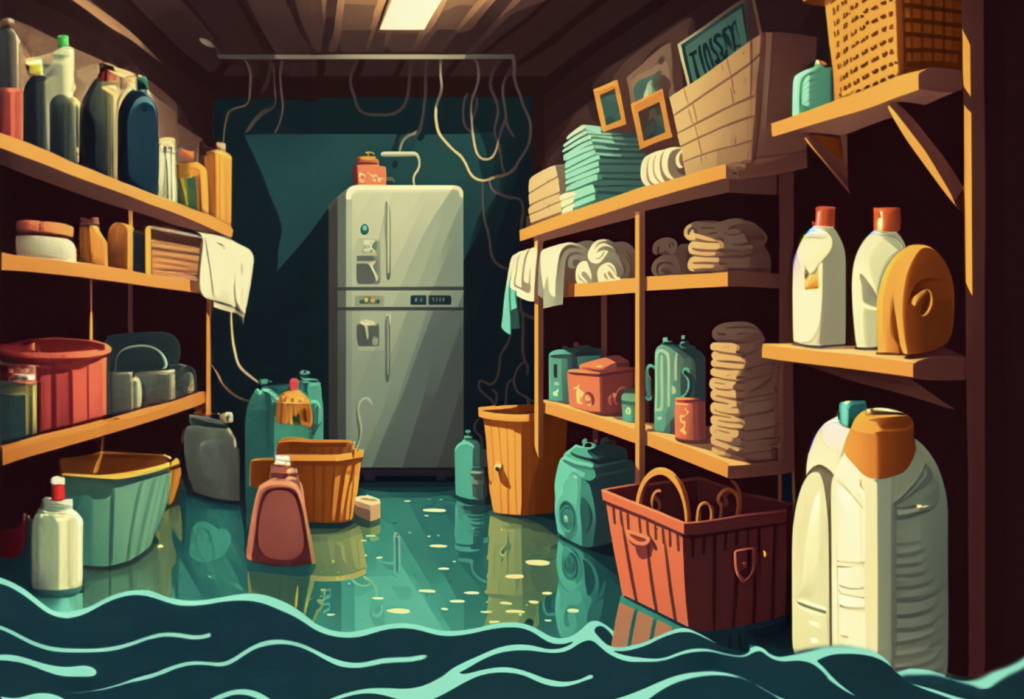
As we find ourselves more and more in the crosshairs of volatile weather patterns, it’s essential to understand the potential risks associated with storms and floods. While structural damage, power outages, and loss of property are top of mind, another frequently overlooked concern warrants our attention: the risk of household chemical spills during severe weather events.
Cleaning supplies, gardening chemicals, automotive fluids and paints can all pose threats to human health, animal life and the environment when not properly managed. While severe weather events create conditions that increase the likelihood of chemical spills and releases, preparation before an emergency strikes can significantly mitigate these risks.
Secure Storage
The first step in preventing household chemical spills during severe weather is ensuring your chemicals are stored safely and securely. Chemical containers should be sealed tightly, stored upright, and ideally kept in a lockable, waterproof storage bin or cabinet.
Keep these containers on high shelves or in raised cabinets to protect them from potential flooding. Anchoring shelves provides an additional level of security against tipping. Avoid storing chemical containers in the basement, crawl space or on the floor of your garage or shed, as these lower areas are more likely to be affected by floodwaters. When storing, keep in mind to segregate chemicals to prevent dangerous reactions in case of minor spills or leaks.
Safe Disposal
Proper disposal of household chemicals is another crucial factor to prevent pollution that can spread more widely during storms and floods. Do not pour chemicals down the drain, toilet, on the ground or into waterways, as this can lead to contamination of water resources and soil. Instead, familiarize yourself with local waste disposal services that can handle these types of materials. Solid Waste Management Districts and communities across Indiana have established convenient drop-off programs for household hazardous waste:
- Indy.gov Household Hazardous Waste (ToxDrop) Drop-off Sites
- Indiana Household Hazardous Waste Task Force
Post-Storm Clean-up
In the unfortunate event of a chemical spill, it is important to handle clean-up with caution. Avoid touching spilled chemicals with bare hands or inhaling fumes. Keep children and pets away from areas where chemicals are stored or where a spill has occurred. Contact local authorities and follow their guidance, particularly if the spill is large or if the substance is unknown or toxic. Rely on personnel specifically trained in hazardous waste management and disposal to ensure the situation is responded to safely.
- Call 911 or the National Poison Control Center at 1-800-222-1222 if you suspect someone has been poisoned by a chemical.
- Call local authorities or the National Response Center at 1-800-424-8802 to report oil and chemical spills, abandoned containers, or other containers you suspect may contain chemicals. Do not touch or move unknown containers.
In conclusion, as we continue to face a growing number of severe weather events, it’s essential that we prepare to manage not just the immediate dangers of these storms, but also the secondary risks they pose, like chemical spills. By practicing safe storage, disposal and knowing how to handle post-storm clean-up, we can reduce the impact of these events on our homes and our environment.
Learn More: https://www.cdc.gov/disasters/chemicals.html
